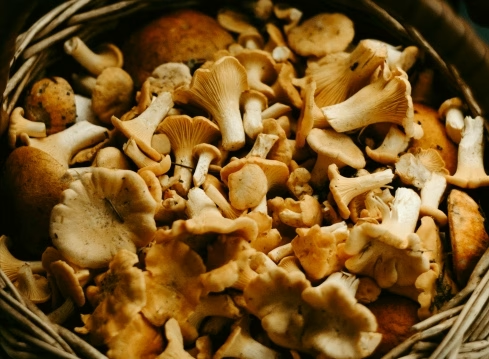Eating mushrooms can increase your intestinal Bacteroidetes count and stabilize your blood sugar.
Did you know? Over 1 kilogram of bacteria coexist with the host in our intestines. These bacteria evolve alongside their hosts, influenced by factors like age, metabolism, geography, and stress. These bacteria influence our immunity, weight, and even our mental and blood sugar health.
In 2005, David Relman’s research team at Stanford University published a landmark paper in Science. The first sentence of the paper stated:
“Gut bacteria are essential to the human body, providing nutrients, regulating the development of intestinal cells, and inducing the development of the immune system. Yet, surprisingly, our understanding of them remains so limited.” Consequently, research on intestinal bacteria has become extremely popular in recent years.
Bacteria in the guts of thin people can make even fat people thinner.
A Nature study published in August 2013 found that after Caesarean-delivered mice raised in a sterile environment were inoculated with intestinal bacteria from other mice, the mice that received the bacteria from the “fat mice” gained more fat than those that received the bacteria from the “lean mice.” This suggests that the composition of gut bacteria is indirectly reflected in weight.
Based on this, the researchers hypothesized that a healthy diet can help beneficial bacteria thrive. Another Nature article published in the same issue followed 49 overweight or obese individuals and placed them on a low-fat, low-calorie, protein- and fiber-rich diet. The results showed that a healthy diet indeed improved the composition of gut bacteria and led to weight loss.
Although the current study is relatively small, it does suggest that dietary management can potentially improve gut microbiome diversity and reduce weight.
A healthy gut microbiome can banish your depression.
The term “psychobiotics” has been gaining popularity since 2012, and numerous studies have emerged on the impact of gut microbiome on the nervous system. For example, in 2018, Professor Ted Dinan of Cork University Hospital in Ireland noted that the diversity of microbiota in patients with depression is significantly lower than in healthy individuals. While this isn’t the sole cause, it certainly could be a contributing factor.
While the food we eat, the pets we keep, the medications we take, and the air we breathe can all determine and alter our microbiome, further research is needed to determine which bacteria can alter the gut microbiome and, in turn, affect the body.
Eating mushrooms can increase your gut Bacteroidetes count and stabilize your blood sugar.
In June 2018, a study at Philadelphia University in the United States conducted an animal study using mushrooms. The study found that consuming one serving (approximately 85 grams) of mushrooms daily improved gut health and reduced the risk of type 2 diabetes.
This is because mushrooms are rich in fiber, mannitol, β-Glucan, ergothioneine, vitamin D2, riboflavin, niacin, pantothenic acid, copper, and selenium, nutrients known to have beneficial physiological functions.
The study, which fed mushrooms daily to mice, found an increase in the number of Prevotella species in the gut that produce propionate and succinate. These acids, in the gut, have been linked to increased gluconeogenesis in the gut and liver, stabilizing blood sugar, and improving the expression of genes associated with mood and anxiety. The results were published in the Canadian Journal of Functional Foods.
Not only can mushrooms act as prebiotics, but as mentioned earlier, a balanced diet low in fat, calories, and rich in protein and fiber may also alter the composition of our gut bacteria.
Besides purchasing commercially available probiotics and yogurt supplements, a simpler approach is to drink six glasses of water daily and start with the Ministry of Health and Welfare’s recommended daily dietary fiber intake (25-35 grams).
For example, replace refined starches with whole grains and consume enough fruits and vegetables (5 servings per day for children, 7 servings for girls, and 9 servings for boys). Maintaining a healthy gut flora is far more important than you might think.


Leave a Reply